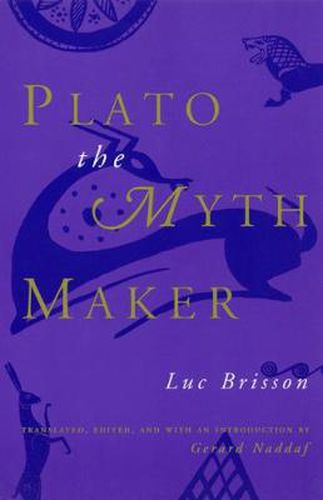Readings Newsletter
Become a Readings Member to make your shopping experience even easier.
Sign in or sign up for free!
You’re not far away from qualifying for FREE standard shipping within Australia
You’ve qualified for FREE standard shipping within Australia
The cart is loading…






We think of a myth as a fictional story, and Plato was the first to use the term muthos in that sense. But Plato also used muthos to describe the practice of making and telling myths, the oral transmission of all that a community keeps in its collective memory. In the first part of this text, Luc Brisson reconstructs Plato’s multifaceted and not uncritical description of muthos in light of the latter’s famous Atlantis story. The second part of the book contrasts this sense of myth, as Plato does, with another form of speech which he believed was far superior: the logos of philosophy. Brisson’s work is part lexical, part philosophical, and part ethnological, and Gerard Naddaf’s substantial introduction shows the originality and importance both of Brisson’s method and of Plato’s analysis in the context of contemporary debates over the origin and evolution of the oral tradition.
$9.00 standard shipping within Australia
FREE standard shipping within Australia for orders over $100.00
Express & International shipping calculated at checkout
We think of a myth as a fictional story, and Plato was the first to use the term muthos in that sense. But Plato also used muthos to describe the practice of making and telling myths, the oral transmission of all that a community keeps in its collective memory. In the first part of this text, Luc Brisson reconstructs Plato’s multifaceted and not uncritical description of muthos in light of the latter’s famous Atlantis story. The second part of the book contrasts this sense of myth, as Plato does, with another form of speech which he believed was far superior: the logos of philosophy. Brisson’s work is part lexical, part philosophical, and part ethnological, and Gerard Naddaf’s substantial introduction shows the originality and importance both of Brisson’s method and of Plato’s analysis in the context of contemporary debates over the origin and evolution of the oral tradition.